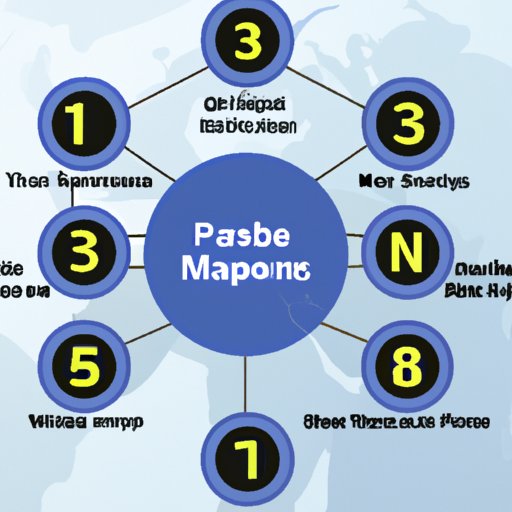Google's Dominance Under Scrutiny: The Growing Risk Of Antitrust Action

Table of Contents
The Evidence of Anti-Competitive Practices
The evidence supporting concerns about antitrust action against Google is multifaceted, stemming from its market dominance, strategic acquisitions, and data collection practices.
Market Dominance in Search
- Overwhelming Market Share: Google holds a commanding lead in search engine market share, consistently exceeding 90% globally. This dominance extends to related services like Google Maps, Android, and Google Chrome, creating a near-monopoly.
- Impact on Competitors and Innovation: This dominance significantly restricts opportunities for competitors, hindering innovation and limiting consumer choice. Smaller search engines struggle to gain traction, stifled by Google's immense resources and network effects.
- Potentially Anti-Competitive Practices: Google has been accused of prioritizing its own services in search results, a practice known as "self-preferencing," which allegedly disadvantages competitors. This, alongside other tactics, has fueled antitrust concerns.
Strategic Acquisitions and Stifled Innovation
Google's history of acquisitions raises further antitrust concerns. Many acquisitions have involved companies that posed potential competitive threats.
- Eliminating Potential Competitors: The acquisitions of DoubleClick (online advertising), YouTube (video streaming), and Fitbit (wearable technology) are prime examples where acquisitions arguably eliminated potential competitors or significantly reduced competition.
- Impact on Innovation and Consumer Choice: Critics argue that these acquisitions stifle innovation by preventing the emergence of independent companies that could offer alternative services and technologies. This reduces consumer choice and limits the diversity of the digital landscape.
- Preemptive Acquisitions: Some argue that Google uses acquisitions strategically to neutralize potential threats before they can gain significant market share, further consolidating its power.
Data Collection and Privacy Concerns
Google's extensive data collection practices are increasingly linked to antitrust concerns.
- Data Dominance and Market Power: Google's massive data holdings give it an unparalleled advantage in targeted advertising and other services. This data dominance translates directly into market power.
- Targeted Advertising and Competition: Google's ability to leverage user data for hyper-targeted advertising creates a significant barrier to entry for competitors. Smaller companies lack the same scale and data resources.
- Privacy Concerns and Antitrust: While not directly an antitrust issue, concerns about data privacy often intertwine with antitrust discussions, emphasizing the power Google holds over user information.
Mounting Regulatory Pressure and Investigations
The concerns surrounding antitrust action against Google are not theoretical; they are reflected in the mounting regulatory pressure and investigations globally.
US Antitrust Actions
The US Department of Justice and various state attorneys general have launched significant antitrust investigations into Google's practices.
- Ongoing Investigations and Lawsuits: These investigations cover various aspects of Google’s business, including its search practices, advertising dominance, and app store policies.
- Potential Penalties and Remedies: Potential penalties could include hefty fines and structural changes to Google’s business model.
- Specific Cases and Outcomes: While some cases have settled, others are ongoing, reflecting the complexity and scale of the antitrust challenges.
EU and International Investigations
The European Union has been particularly active in investigating Google's practices, issuing significant fines in the past.
- Global Nature of Concern: Antitrust investigations are not limited to the US. Regulators worldwide are increasingly concerned about Google's dominance and its impact on fair competition.
- Fines and Penalties: The EU has imposed substantial fines on Google for anti-competitive practices, highlighting the global nature of the regulatory pressure.
- International Cooperation: There is growing international cooperation among regulatory bodies to address the challenges posed by large tech companies like Google.
Public Opinion and Growing Scrutiny
Public perception of Google's market power is increasingly negative, further fueling antitrust sentiment.
- Evolving Public Perception: Growing awareness of Google's data collection practices and perceived monopolistic behavior has led to public criticism.
- Media Coverage and Public Advocacy: Media coverage and advocacy groups have played a crucial role in highlighting these concerns and shaping public opinion.
- Public Backlash: Increased public pressure is adding to the regulatory scrutiny, driving the demand for antitrust action.
Potential Consequences of Antitrust Action
Antitrust action against Google could have significant consequences, impacting its financial stability and business practices.
Financial Penalties and Fines
Significant financial penalties and fines are a very real possibility, potentially impacting Google's profitability and share price.
Structural Remedies (Divestiture)
Google may be forced to divest assets or business units, potentially including major parts of its operations. This could drastically alter its market position.
Behavioral Remedies (Changes to Practices)
Google might be required to change its business practices, such as altering its search algorithms or data collection methods. These changes could impact its ability to operate as it currently does.
Impact on Innovation and Consumer Choice
The long-term consequences could significantly influence innovation and consumer choice, potentially creating a more competitive and diverse digital landscape.
Conclusion
The evidence strongly suggests an increasing likelihood of significant antitrust action against Google. The company's overwhelming market dominance, strategic acquisitions, and data collection practices have raised serious concerns about anti-competitive behavior. Mounting regulatory pressure from the US, EU, and other international bodies, coupled with growing public scrutiny, further underscores this risk. The potential consequences, ranging from substantial financial penalties to structural changes, could reshape Google's business model and the broader technological landscape. The future of Google and the competitive landscape of the tech industry hangs in the balance. Continue to follow this important story as the risk of further antitrust action against Google and potential Google antitrust rulings remains high.

Featured Posts
-
 Turning Poop Into Prose An Ais Journey From Scatological Data To Podcast Gold
Apr 22, 2025
Turning Poop Into Prose An Ais Journey From Scatological Data To Podcast Gold
Apr 22, 2025 -
 Mapping The Countrys Hottest New Business Locations
Apr 22, 2025
Mapping The Countrys Hottest New Business Locations
Apr 22, 2025 -
 Anti Trump Protests Sweep The Us Citizen Voices
Apr 22, 2025
Anti Trump Protests Sweep The Us Citizen Voices
Apr 22, 2025 -
 China Indonesia Security Dialogue Building Stronger Bilateral Relations
Apr 22, 2025
China Indonesia Security Dialogue Building Stronger Bilateral Relations
Apr 22, 2025 -
 Open Ais 2024 Developer Event Easier Voice Assistant Creation
Apr 22, 2025
Open Ais 2024 Developer Event Easier Voice Assistant Creation
Apr 22, 2025
Latest Posts
-
 Four Mind Altering Randall Flagg Theories That Reinterpret Stephen Kings Universe
May 10, 2025
Four Mind Altering Randall Flagg Theories That Reinterpret Stephen Kings Universe
May 10, 2025 -
 King Protiv Maska Pikantnye Podrobnosti Vozvrascheniya Pisatelya Na X
May 10, 2025
King Protiv Maska Pikantnye Podrobnosti Vozvrascheniya Pisatelya Na X
May 10, 2025 -
 Stiven King Vernulsya V X I Napal Na Ilona Maska
May 10, 2025
Stiven King Vernulsya V X I Napal Na Ilona Maska
May 10, 2025 -
 Vozvraschenie Stivena Kinga Na X Oskorblenie Ilona Maska
May 10, 2025
Vozvraschenie Stivena Kinga Na X Oskorblenie Ilona Maska
May 10, 2025 -
 5 Celebrity Feuds That Involved Stephen King
May 10, 2025
5 Celebrity Feuds That Involved Stephen King
May 10, 2025
